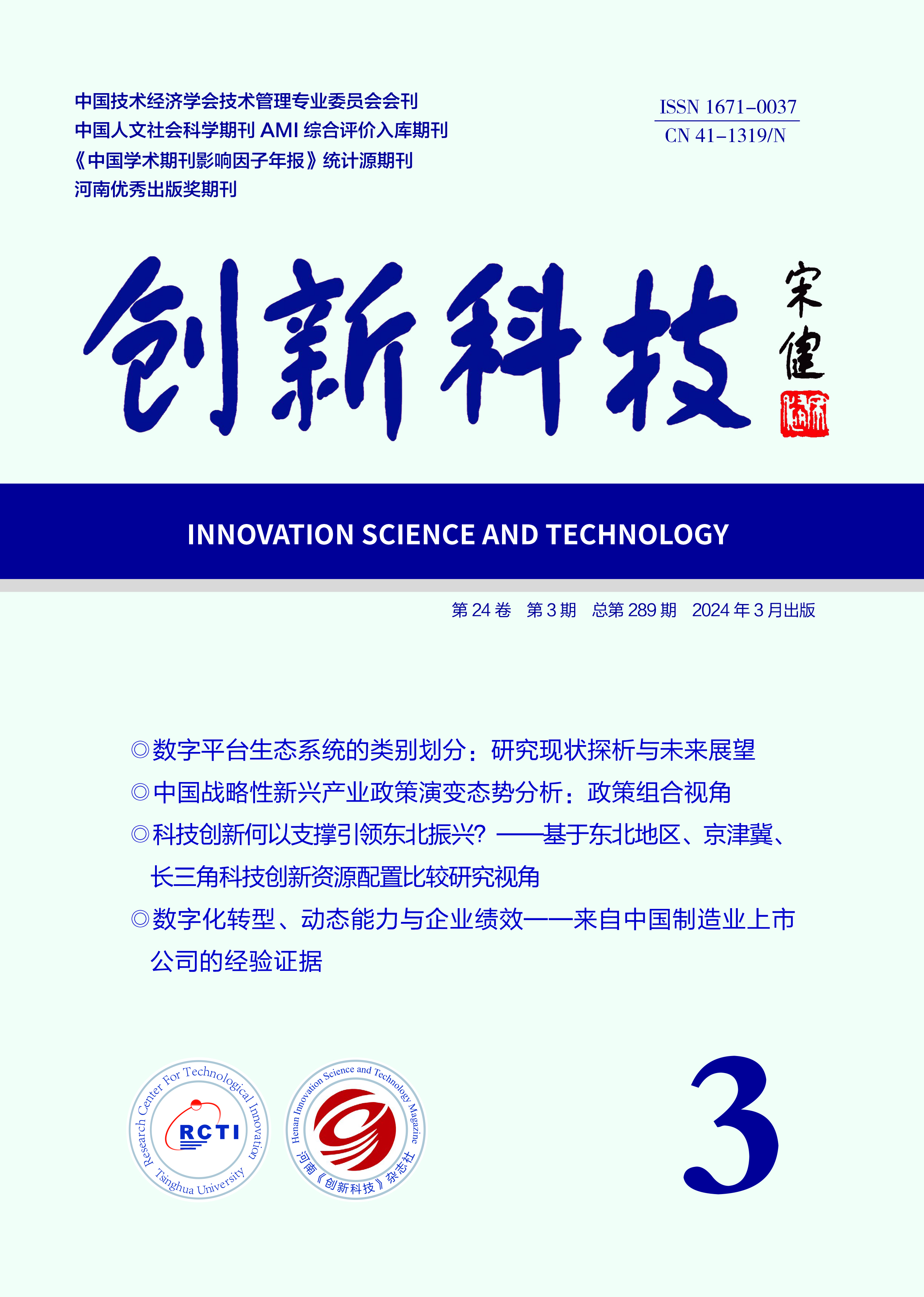INNOVATION SCIENCE AND TECHNOLOGY
Quick Search

All publication are peer-review
Peer review will take the from of double-blind review Judge objectively and impartially
There is no conflict of interest for the reviewer
Review articles shall be kept strictly confidential prior to publication
Enterprise's R&D and Innovation Management
Key Factors and Driving Mechanisms of Private Enterprise Per⁃ formance
—— A Hybrid Empirical Analysis Based on the Guangdong-Hong Kong-Macau Greater Bay Area
Li Fanbo
(School of Social Sciences, Tsinghua University, Beijing 100084, China)
Abstract: This study aims to investigate the key factors and driving mechanisms of the eco⁃ nomic performance of private enterprises in the Guangdong-Hong Kong-Macau Greater Bay Area. Focusing on knowledge accumulation tendencies, management capabilities, enterprise growth, institutional environment, and transaction costs, the research explores their comprehen⁃ sive impact on both endogenous and external economic performance. By constructing an inte⁃ grated theoretical model and employing both Structural Equation Modeling (SEM) and fuzzy-set Qualitative Comparative Analysis (fsQCA), this study reveals how knowledge management and institutional frameworks interact to enhance the economic performance of private enterprises in complex market environments. The findings show that knowledge accumulation significantly im⁃ proves management capabilities, which, in turn, enhances the internal economic performance of enterprises by optimizing management efficiency and resource allocation. Knowledge accumula⁃ tion not only improves technical capabilities and market responsiveness but also enhances decision-making quality, providing strong support for sustained business growth. Furthermore, the study finds a significant positive relationship between knowledge accumulation tendencies and enterprise growth, indicating that knowledge accumulation is a key driver of business expan⁃ sion. Additionally, management capability plays a significant mediating role between knowledge accumulation tendencies and endogenous economic performance. Enhanced management capac⁃ ity enables enterprises to better integrate internal resources, improve operational efficiency, and respond effectively to market uncertainties. However, enterprise growth does not significantly mediate the relationship between knowledge accumulation and endogenous economic perfor⁃ mance, suggesting that the impact of knowledge accumulation can independently affect eco⁃ nomic outcomes without relying on the enterprise growth path. The institutional environment sig⁃ nificantly affects both enterprise growth and transaction costs. A sound institutional environment can effectively reduce market transaction costs, optimize resource allocation, and further pro⁃ mote enterprise growth and external economic performance. Lower transaction costs provide en⁃ terprises with greater market adaptability, thereby strengthening their competitiveness in global markets. Through fsQCA analysis, this study also identifies multiple configurations of factors in⁃ fluencing enterprise performance, highlighting the interactive role of knowledge accumulation, management capabilities, and transaction costs as key drivers of performance enhancement. This study contributes to theory by extending the integration of knowledge management and institu⁃ tional economics, particularly emphasizing how knowledge management can enhance enterprise competitiveness through improved management capabilities in different institutional environ⁃ ments. Moreover, the study provides practical recommendations for optimizing management strat⁃ egies and controlling transaction costs in private enterprises operating in complex market envi⁃ ronments, offering valuable theoretical support and empirical evidence for policymakers and business managers.
Key words: private enterprises; economic performance; SEM-QCA method; enterprise knowl⁃ edge management; institutional economics